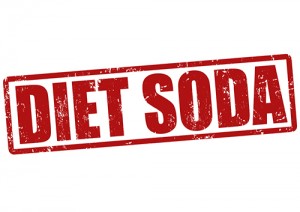 What do people like to drink when they are trying to lose weight? Diet Soda and Diet drinks with fake sugars like aspartame. The problem is that there may be potential negative affects of diet sweeteners. Here are 8 reasons you should consider whether these artificial sweeteners could be bad for you.
What do people like to drink when they are trying to lose weight? Diet Soda and Diet drinks with fake sugars like aspartame. The problem is that there may be potential negative affects of diet sweeteners. Here are 8 reasons you should consider whether these artificial sweeteners could be bad for you.
- A recent University of Iowa study of almost 60,000 women found that diet drinks could be associated with heart trouble for older women. “Drinking two or more diet drinks a day may increase the risk of heart disease, including heart attack and stroke, in otherwise healthy postmenopausal women, according to a new University of Iowa study.”
- Symptoms attributed to aspartame in complaints submitted to the FDA by the Department of Health and Human Services (April 20, 1995) include headache, dizziness, change in mood, nausea, abdominal pain and change in vision.
- “In her widely publicized work, published as an opinion article in the journal Trends in Endocrinology and Metabolism, [Susan] Swithers (Purdue University professor) reviewed recent studies on artificial sweeteners and concluded that people who frequently consume sugar substitutes “may … be at increased risk of excessive weight gain, metabolic syndrome, type 2 diabetes, and cardiovascular disease.” – Source
- “Recent studies show that these chemically modified sweeteners can damage the way your body naturally processes sugar, making you much more susceptible to overeating. Because of the increasing public health warnings, food companies are now using obscure names to hide these artificial sweeteners in their products.” – doctoroz.com (Check out this list of sweeteners)
- Saccharin was evaluated and banned by the FDA in 1908, but the ban was later reversed. “In the 1970s, tests done on lab rats found that those administered saccharin had higher rates of bladder cancer than those who were not. Saccharin was proposed to be made unavailable to American consumers, but ended up being labeled for consumers as potentially dangerous and for causing cancer in lab rats. Despite this knowledge of cancer occurrences, in 2000, the FDA repealed the warning label requirement for saccharin and in 2001 the FDA reversed their decision on saccharin, declaring it safe for consumption. Finally, in 2010, this substance was removed from the EPA’s list of hazardous materials.” – Source
- I personally know at least 2 people who are violently allergic to Splenda. Splenda is also known as Sucralose. “Sucralose, like many artificial sugars, passes through the gastrointestinal tract intact, so that very few calories, if any, are absorbed. Eating excessive amounts of sucralose may cause diarrhea, bloating and gas. Gastrointestinal symptoms might occur because of reactions between bacteria in the intestines and components of sucralose that together produce nitrogen gas. Symptoms may occur because the undigested sucralose draws water into the intestine, producing diarrhea, according to health educators at Columbia University’s Go Ask Alice website.” – Source
- “As far as short-term effects, sugar alcohols — technically not considered artificial — can cause bloating and diarrhea in some people and the effect may occur with as little as 50 grams of sugar alcohol. These sweeteners include sorbitol. Lactitol and mannitol are lower in calories than sugar, don’t promote tooth decay, or cause an increase in blood sugars, according to the FDA.” – WebMD
- “Studies show that although diet soda has no caloric value, it may have an impact on insulin similar to sugar ingestion. This is most likely due to the cephalic phase insulin response in the brain. When you taste the sweet in diet soda, your body perceives it as sugar and causes the pancreas to release insulin just as it would if you were consuming actual sugar.” – kimberlysnyder.net

Comment Via Facebook